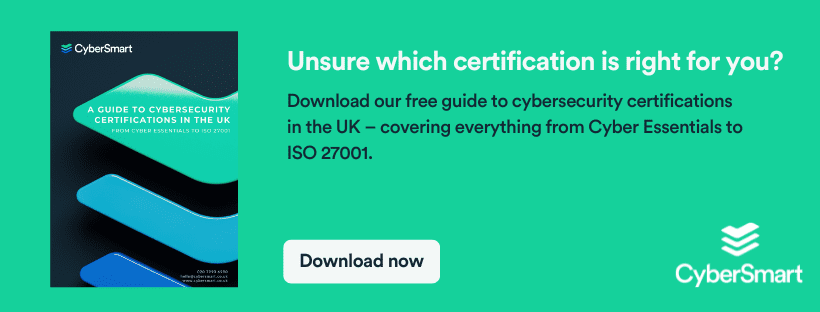Data breaches have become increasingly commonplace for both businesses and consumers. Consumers face worries about the safety of their data, while many businesses seem to be failing to keep up with protection against cyber-attacks. A 2019 report from Bitdefender revealed that six out of ten businesses had been a victim of a data breach in the last three years. As threats continue to grow, it is becoming more and more important for businesses to ensure they prioritise funnelling their budget and resources into cybersecurity.
How worried should I be about a data breach?
Despite IT professionals working to stay on top of cybersecurity and feeling confident with the protection they provide, the reality is that businesses continue to face security breaches. Honest IT professionals have admitted that their business could be being breached without them even realising. The largest threats facing companies' cybersecurity are thought to be phishing, whaling attacks, Trojans or Ransomware. Cyber-attacks can be incredibly difficult to achieve efficient protection against, which is due to the complex and ever-evolving landscape of attackers and methods used.
As businesses grow and navigate the current economic climate, lower budgets and cuts to training can be a common occurrence. Unfortunately, this can mean inadequate training for cybersecurity teams, insufficiently educated employees, and consequently businesses that are under-protected against attack. Now more than ever, it is vital that businesses invest time and money into their cybersecurity resources, or they risk facing an attack that could be detrimental to the whole business
How can I prevent an attack?
As threats to cybersecurity continue to evolve in their sophistication and complexity, it can be tough for businesses to prepare themselves adequately from attack. There are constant improvements being made in the industry of cybersecurity, and changes in regulations that businesses are expected to comply with. A great idea to protect against a data breach is to educate your employees on cybersecurity, the potential threats and the steps that should be taken to best avoid an attack. There are many well-qualified companies that offer thorough cybersecurity training from skilled professionals.
Furthermore, the most significant step businesses can take to improve their data protection is to invest in cyber-protection software that prevents the maximum amount of attacks, meets current government standards and automatically works to ensure employee devices are compliant. Cybersmart offers a range of certification such as Cyber Essentials and Cyber Essentials Plus, as well as CyberSmart’s applications, providing you, your business and your customers with peace of mind and assurance that your data is well-protected.









